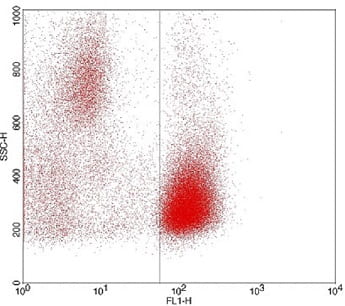Associated Publication:
Deravi, N., Berke, O., Woods, J. P., & Bienzle, D. (2017). Specific immunotypes of canine T cell lymphoma are associated with different outcomes. Veterinary immunology and immunopathology, 191, 5–13. https://doi.org/10.1016/j.vetimm.2017.07.008 https://pubmed.ncbi.nlm.nih.gov/28895866/
Objective:
To improve diagnosis and provide a more accurate prognosis for T-cell lymphomas
Background:
T-cell lymphomas are generally considered to have a worse prognosis than B-cell lymphomas. However, within the large group of T-cell lymphomas there are some that progress quickly and some that progress slowly. We currently do not have good methods for differentiating these subtypes of T-cell lymphoma.
Study design:
A lymph node aspirate will be analyzed by flow cytometry to determine if the dog has B- or T-cell lymphoma. If the dog has a T-cell lymphoma, an enlarged lymph node will be biopsied under sedation for histopathology.


Inclusion criteria:
We are enrolling dogs with a cytology or histopathology diagnosis of T-cell lymphoma who will be treated with chemotherapy.
Exclusion criteria:
- Treatment with chemotherapy or glucocorticoids before referral to OVC.
Samples required:
- Biopsies and blood samples (~5ml) before starting chemotherapy treatment.
Client Compensation:
- The study will cover the cost of flow cytometry and lymph node biopsy.
Researchers:
- Dr. Dorothee Bienzele (PI)
Contact:
Vicky Sabine (PhD), Clinical Research Coordinator
- Work Cell #: 226-218-0338
- Email: ovc.clinicaltrials@uoguelph.ca


